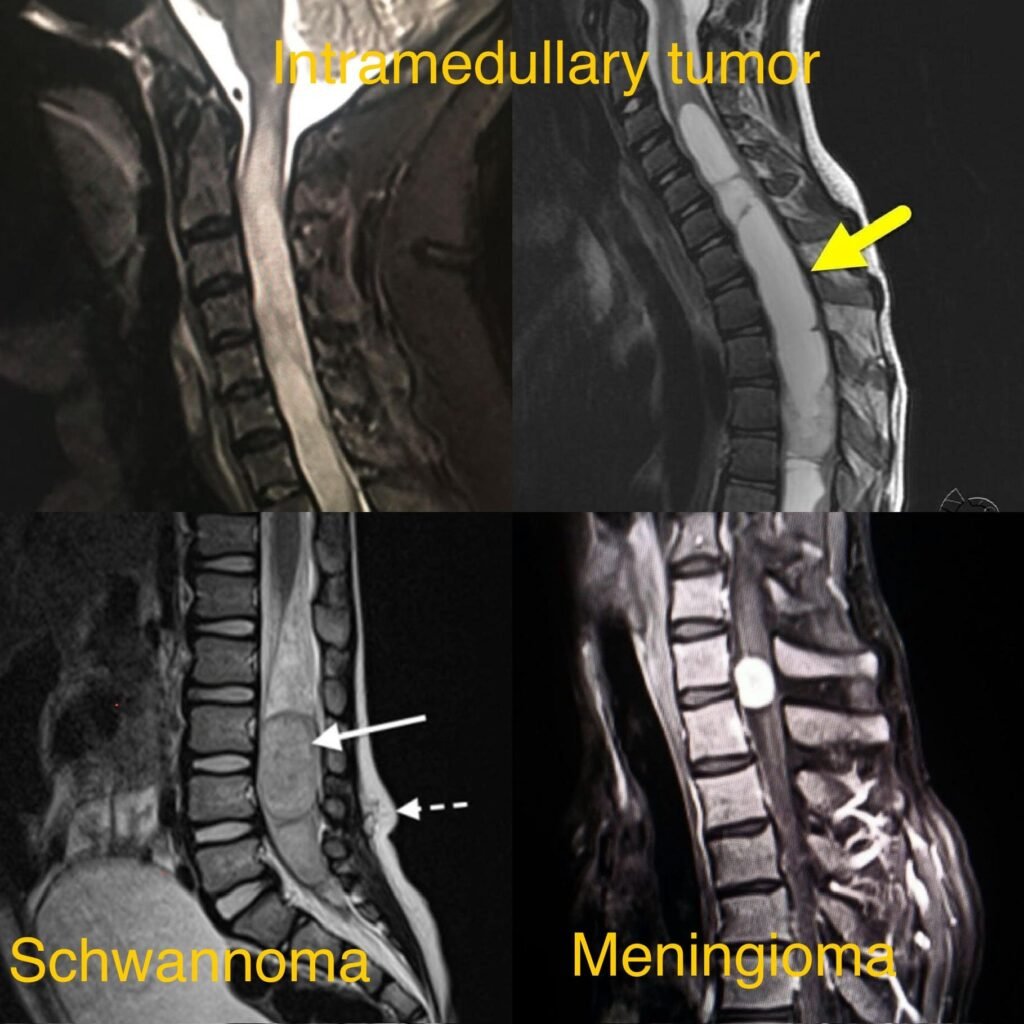Intramedullary Tumors

What is it?
An Intramedullary Tumor is a type of tumor that develops within the spinal cord itself. These tumors can be benign (non-cancerous) or malignant (cancerous) and can arise from various cell types within the spinal cord.
Symptoms:
- Symptoms of Intramedullary Tumors can vary depending on the location, size, and type of tumor.
- Common symptoms may include back or neck pain, weakness or paralysis in the limbs, sensory changes such as numbness or tingling, difficulty walking, and bowel or bladder dysfunction.
Primary Symptoms:
The primary symptoms of Intramedullary Tumors may include:
- Gradual onset of weakness or paralysis in the arms or legs.
- Sensory changes, such as numbness or tingling, particularly in the limbs or trunk.
- Pain in the back or neck, which may worsen with movement or at night.
- Difficulty with balance and coordination, leading to frequent falls or difficulty walking.
- Changes in bowel or bladder function, such as difficulty urinating or controlling bowel movements.
Diagnosis/Treatment:
- Diagnosis typically involves a physical examination, medical history, imaging studies such as MRI or CT scans, and sometimes a biopsy to determine the type of tumor.
- Treatment options may include surgery to remove the tumor, radiation therapy, chemotherapy, or a combination of these approaches depending on the type and stage of the tumor.
What to Expect After Surgery:
- After surgery for an Intramedullary Tumor, patients can expect relief from symptoms such as pain, weakness, and sensory changes.
- Recovery time varies depending on the extent of the surgery and the individual patient, but most patients can expect to gradually improve over several weeks to months.
- Rehabilitation may be necessary to regain strength, mobility, and function in the affected limbs.
Risks & Complications:
- As with any surgery, there are risks associated with procedures to treat Intramedullary Tumors, including infection, bleeding, nerve injury, spinal fluid leakage, and recurrence of the tumor.
- Additionally, depending on the location and type of tumor, there may be a risk of permanent neurological deficits or complications related to the surgery itself.
- However, complications are relatively rare, and the benefits of surgery often outweigh the risks, particularly when the tumor is causing significant symptoms or affecting neurological function.
Spine Treatments
About Dr. Bharat
Dr Bharat Shinde completed his M.Ch Neurosurgery from the National Institute Of Mental Health And Neurosciences (NIMHANS), Bangalore which is an institute of National importance.
